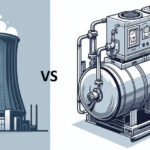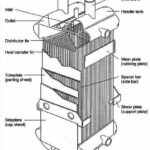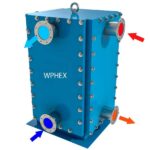This short article will only give basic introduction that explains what is membrane filtration. Looking at their applications and advantages as well as disadvantages. Also looking briefly on the four types of membrane types that are commonly used in industries.
What is membrane filtration?
Membrane filtration is a separation process that uses a semipermeable membrane to separate a mixture of substances into its components. The membrane acts as a barrier, allowing only molecules of a certain size and charge to pass through, while retaining others. Membrane filtration is widely used in various industries, such as water treatment, food and beverage processing, and biotechnology.
Types of membranes
There are several types of membranes used in membrane filtration, including:
- Microfiltration (MF) membranes: These membranes have pore sizes ranging from 0.1 to 10 microns and are used for removing suspended solids and particles.
- Ultrafiltration (UF) membranes: These membranes have pore sizes ranging from 0.01 to 0.1 microns and are used for removing dissolved solids and macromolecules.
- Nanofiltration (NF) membranes: These membranes have pore sizes ranging from 0.001 to 0.01 microns and are used for separating salts and small organic molecules.
- Reverse osmosis (RO) membranes: These membranes have pore sizes of less than 0.001 microns and are used for removing dissolved salts and other impurities.
The types above can be also used together combining different stages. for example stage 1 can have ultrafiltration membranes and stage 2 can have nanofiltration membranes or reverse osmosis membranes. with the last being commonly used in water industry.
Uses and applications
- Water treatment: Membrane filtration is used to purify water, including removing pathogens, dissolved solids, and other impurities. for example seawater desalination plants to purify seawater into drinking water.
- Food and Beverage Processing: Membrane filtration is used in the production of various food and beverage products, such as dairy, juice, and beer.
- Biotechnology: Membrane filtration is used in biotechnology for processes such as protein purification, virus removal, and concentration of biological fluids.
Advantages and Disadvantages
After explaining what is membrane filtration and applications, we look at the advantages and disadvantages of membrane filtration
| Advantages | Disadvantages |
|---|---|
| High Efficiency: Membrane filtration provides high-efficiency separation compared to other traditional separation techniques. | Membrane Fouling: The accumulation of impurities on the membrane surface can reduce efficiency and increase the frequency of cleaning. |
| Selective separation: Membrane filtration allows for selective separation of components in a mixture, based on molecular size and charge. | High initial cost: The cost of setting up a membrane filtration system can be high |
| Low-energy consumption: Membrane filtration requires less energy compared to other separation methods, making it cost-effective. | Maintenance: Membrane filtration systems require regular maintenance to ensure efficient and effective operation. |
| Continuous operation: Membrane filtration systems can be designed for continuous operation, providing a consistent supply of purified product. | Limited to specific applications: The effectiveness of membrane filtration depends on the properties of the feed stream and the membrane. In some cases, the feed stream may be too viscous, corrosive, or contain particulates that can damage the membrane. |
Summary
To conclude what is membrane filtration in simple terms, its a process that uses membranes as a filter to produce required outcome. It’s also worth noting that membrane filtrations is use in different sector of industry as many uses the permeate stream as the clean product some industries such as colour and dyes use the concentrate stream as the clean product. In colours and dyes the permeate stream is a waste product, the process quality is measured using different tests that checks the conductivity of the concentrate stream to determine the quality of filtration or removing inorganics from the dye.
This summaries what is membrane filtration. check out more articles on our website.












